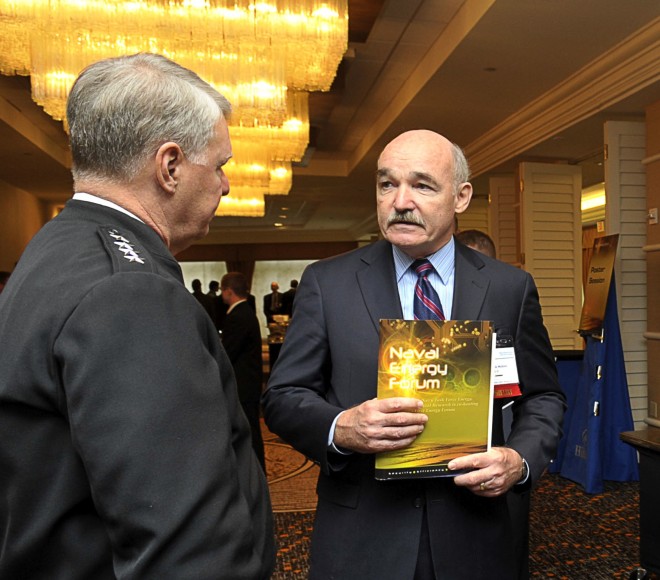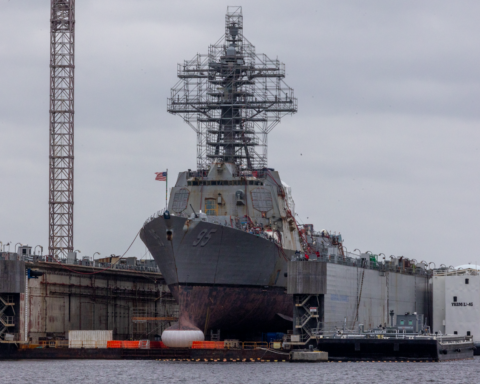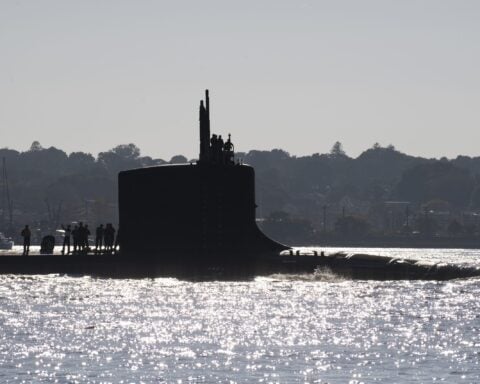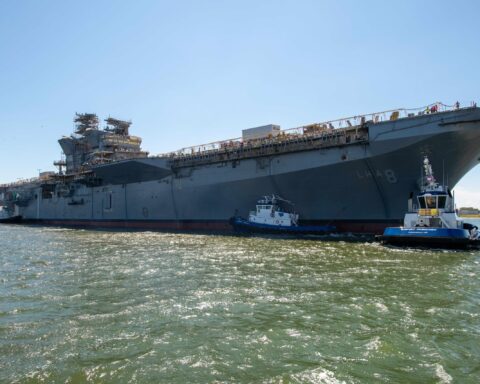
Speaking at the 7th field demonstration of the Star-TIDES project on the campus of the National Defense University in Washington, Dennis McGinn added, “We need our own E-Harmony” to bring together small businesses like those at the field demonstration that ran the first week of October, large contractors, nongovernmental organizations, and the government “where we can get good ideas on needs out there. . . . It has to be a two-way street.”
He said the Strong Angel exercises focusing on disaster and humanitarian relief, pioneered by the Navy (the next one scheduled for March 2014) were platforms to “create new partnerships across the board” in developing low-cost and sustainable solutions to problems not readily identified.
Hurricane Sandy “was a tremendous lesson in [the limits] of Big Energy” or being able to extract fuel from the ground in the wake of a natural disaster. “We have to plan to be more resilient” and that includes “off-the-grid solutions, small storage, micro grids” to speed recovery work.
Events such as the field demonstration at Fort McNair can provide “windows” that can be explored for new kinds of public-private partnerships. “We don’t have to own it in all cases. We do logistics, global command and control, and security well,” but not necessarily water purification, energy conservation, and such.
McGinn also cited the potential of existing forums such as the AFCEA/Naval Institute–sponsored EAST and WEST Forums, and the Association of the United States Army’s annual meeting as “meeting places and clearinghouses” for those kinds of discussions to include third-party financing.
Those meetings offer sessions for small businesses, as do events produced by the National Defense Industrial Association and the Navy League.
McGinn, a retired vice admiral who was confirmed on 3 September, said there is value in creating a small business industrial base to bring new ideas forward rapidly.
“We need to break down organizational barriers” that have become “cylinders of excellence.” At the same time, there is a need, especially inside the federal government, to develop with industry-agreed metrics of cost, performance and sustainability.
Linton Wells II, who organized the field demonstration and is the director of NDU’s Center for Technology and National Security Policy, said a primary goal of the Star-TIDES effort was to “produce quick wins at low cost.”
Even in tight fiscal times, McGinn said, the Navy “is going to hold the line on energy efficiency” to control costs. “Let us know what works and what doesn’t . . . in “helping us adjust the content of our kit that we leave behind” to assist communities that were caught in conflict or natural disaster.





